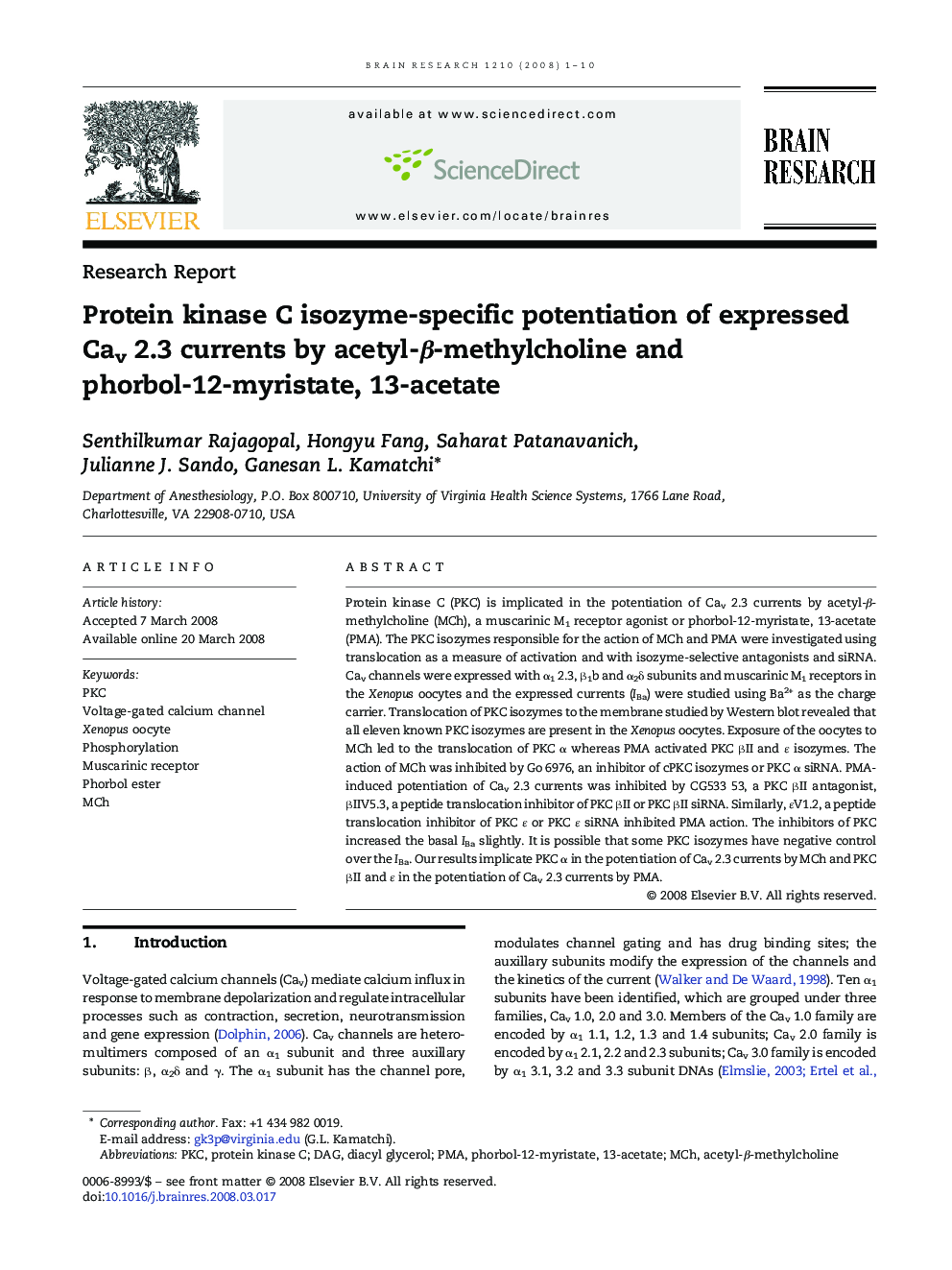| Article ID | Journal | Published Year | Pages | File Type |
|---|---|---|---|---|
| 4329648 | Brain Research | 2008 | 10 Pages |
Protein kinase C (PKC) is implicated in the potentiation of Cav 2.3 currents by acetyl-β-methylcholine (MCh), a muscarinic M1 receptor agonist or phorbol-12-myristate, 13-acetate (PMA). The PKC isozymes responsible for the action of MCh and PMA were investigated using translocation as a measure of activation and with isozyme-selective antagonists and siRNA. Cav channels were expressed with α1 2.3, β1b and α2δ subunits and muscarinic M1 receptors in the Xenopus oocytes and the expressed currents (IBa) were studied using Ba2+ as the charge carrier. Translocation of PKC isozymes to the membrane studied by Western blot revealed that all eleven known PKC isozymes are present in the Xenopus oocytes. Exposure of the oocytes to MCh led to the translocation of PKC α whereas PMA activated PKC βII and ɛ isozymes. The action of MCh was inhibited by Go 6976, an inhibitor of cPKC isozymes or PKC α siRNA. PMA-induced potentiation of Cav 2.3 currents was inhibited by CG533 53, a PKC βII antagonist, βIIV5.3, a peptide translocation inhibitor of PKC βII or PKC βII siRNA. Similarly, ɛV1.2, a peptide translocation inhibitor of PKC ɛ or PKC ɛ siRNA inhibited PMA action. The inhibitors of PKC increased the basal IBa slightly. It is possible that some PKC isozymes have negative control over the IBa. Our results implicate PKC α in the potentiation of Cav 2.3 currents by MCh and PKC βII and ɛ in the potentiation of Cav 2.3 currents by PMA.
